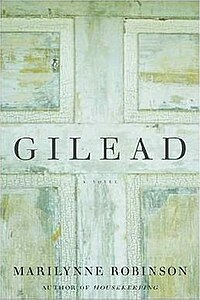I heard about The Good
Lord Bird on the radio a couple of weeks ago. I was captivated by James
McBride, with his talking about growing up poor in a family of 12 children, in
Brooklyn. He’s a writer, musician, teacher, and before I got The Good Lord Bird, I started reading The Color of Water, his memoir of his
white, Jewish mother, who never let her children know she was not African
American – and who never let her children do anything with their lives other
than succeed in school and succeed in life.
John Brown, abolitionist and fanatic evangelical, also
figures largely in The Good Lord Bird,
in this book in the foreground. The narrator is a slave boy, captured by Brown
in one of his bloody raids, and whom Brown mistakes for a girl. As a girl,
“Henrietta” is part of Brown’s gang, along with Brown’s sons and a
multicultural assortment of Free Staters. Brown is a scary evangelical –
McBride admitted to the radio interviewer that he deliberately exaggerated
Brown’s style, his looks, his fervor, using satire even as he portrays Brown as
the hero. John Brown is what happens when religious conviction about God’s
justice and a deep consciousness-change about racism as America’s original sin,
move to their inevitable end. The power unleashed is like those of
anti-abortion activists. Murder is justified when it is vengeance for a sin so
profound.
The Good Lord Bird
of the title is “the Lord God Bird” -- that rare creature ornithologists
thought they spotted in an Arkansas swamp a few years ago. This Ivory-Billed
Woodpecker is one of the largest woodpeckers in the world, with a wingspan of
30 inches. It has a huge head and a thin neck, a white streak that looks
elegant in flight but like a lightning scar when the bird is standing. It does
probably look like some of those images of John Brown: larger than life,
elusive. The Ivory-Billed, if there truly are any living, is headed toward
extinction, due to the destruction of its habitat in the southern, swampy
woodlands, and the fad of killing birds for their “exotic” feathers. John
Brown, in The Good Lord Bird is
headed for extinction himself, driven their by his own passions and by the
inevitability that a society built on slavery will push back with more violence
and the force of law to bring an end to that “exotic” bird’s prophetic and
terrifying cry.
Just finished that remarkable book. It did start out
humorous, or satirical, at least, and much of the satire poked at “Negroes” and
John Brown. But it was all most loving. The narrator character came not only to
love but also admire John Brown, and compellingly makes the case about his
being the catalyst for the final push against slavery.
When I heard the interview with James McBride, he talked
about being a church-goer, a believer – one who acknowledges the power and sustenance
of the Biblical faith – even if, like Brown’s, it has crazy parts. At the end
of the book, after the disastrous Harper’s Ferry raid, the narrator
acknowledges that when Brown was in jail, “writing letters and getting visitors
… he was a star all over again. … the last six weeks of his life the Old Man
got more folks moved ‘bout the slavery question than he ever did spilling blood
back in Kansas, or in all them speeches he gived up in New England. … John
Brown was a Christian man. A bit off his biscuit, but a better Christian you
never saw.” (p. 410)
What makes John Brown a Christian - that "better Christian"? He was murderous and brutal, and yet was loving and kind to all the Negroes he met. Was it that he acted out of love? Yet he left his family for this cause, and put his own children in harm's way -- caused their violent deaths, even.
What is it with fanatics? Do we approve of them if their
cause is right, their end justifies their means? Do present-day abolitionists, taking
on human trafficking and the modern versions of slavery, take their inspiration
from Brown? What about anti-abortion activists, Roman Catholics and
Evangelicals convinced innocents are being slaughtered? The reproductive rights
debate is a bit like the abolition one: it is a battle fought on and over and
through the bodies of others.

The Good Lord Bird, the narrator says at the end, flies lone and wild, and seeks out dead trees in which to roost and peck. He sees one circling around, looking for that "bad tree, I expect, so he could alight upon it and get busy, so that it would someday fall and feed the others." Does that mean violence is inevitable, in the cause of one righteous man's quest for justice? Or is it that rotten institutions must inevitably crumble and fall, and that those peck away at them are hastening the Good Lord's plan?

The Good Lord Bird, the narrator says at the end, flies lone and wild, and seeks out dead trees in which to roost and peck. He sees one circling around, looking for that "bad tree, I expect, so he could alight upon it and get busy, so that it would someday fall and feed the others." Does that mean violence is inevitable, in the cause of one righteous man's quest for justice? Or is it that rotten institutions must inevitably crumble and fall, and that those peck away at them are hastening the Good Lord's plan?

No comments:
Post a Comment